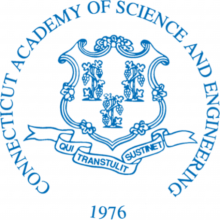Report Leads to Legislation Exempting Newer Vehicles from Routine Testing
HARTFORD, CT — A newly released study by the Connecticut Academy of Science and Engineering (CASE) concludes that improvements in automotive engineering technologies — including electronic fuel injection and ignition and, more recently, increased use of on board diagnostic systems — make regular testing of newer vehicles (those four years old or less) unnecessary. Based on recommendations in the CASE study, the General Assembly enacted new automobile emissions provisions in the General Statutes (Public Act No. 00-180) during its recently concluded session. The legislation exempts any vehicle manufactured within the last four years from periodic emissions testing, provided that such exemptions do not impact the state’s compliance with federal clean air, environmental, or transportation planning regulations.
The CASE study, titled “Efficacy of the Connecticut Motor Vehicle Emissions Testing Program,” also includes the following recommendations:
- that the state adopt “remote sensing” of vehicle exhaust, a method that identifies vehicles with high emissions, which are then ordered into a regular testing facility for examination. The CASE report also endorses a “clean screen” system, whereby “clean
cars” (those who pass remote sensing) are identified and issued a “pass” sticker within the three months prior to their scheduled inspections. These cars do not then have to visit an inspection station, but are required to mail in their inspection fee.
- that the state prepare for On Board Diagnostic (OBD) testing. On board diagnostics are computer systems built into automobiles by manufacturers that, among other functions, can retain information on the vehicle’s performance. It is much less costly
to access these computer systems than to perform tailpipe measurements.
- that the state mandate an external quality assurance function to verify that testing
equipment is functioning properly, that personnel are properly trained, and that
resulting data reflect accurate measurements.
- that the state compare results of failed inspections with second inspections to demonstrate how much emission reduction is achieved from repairing failed vehicles.
The CASE study was conducted at the request of the General Assembly’s Program Review and Investigations Committee, and was chaired by Norman Bowne, Senior Program Manager (retired) of the ENSR Corporation. Other committee members include Baki Cetegen, Professor of Mechanical Engineering at the University of Connecticut; Thomas E. Graedel, Professor of Industrial Ecology and Chemical Engineering and of Geophysics, Yale University; Marshall A. Atwater, Business Application System Developer for Northeast Utilities; and David R. Miller, Professor Natural Resources, University of Connecticut.
###

